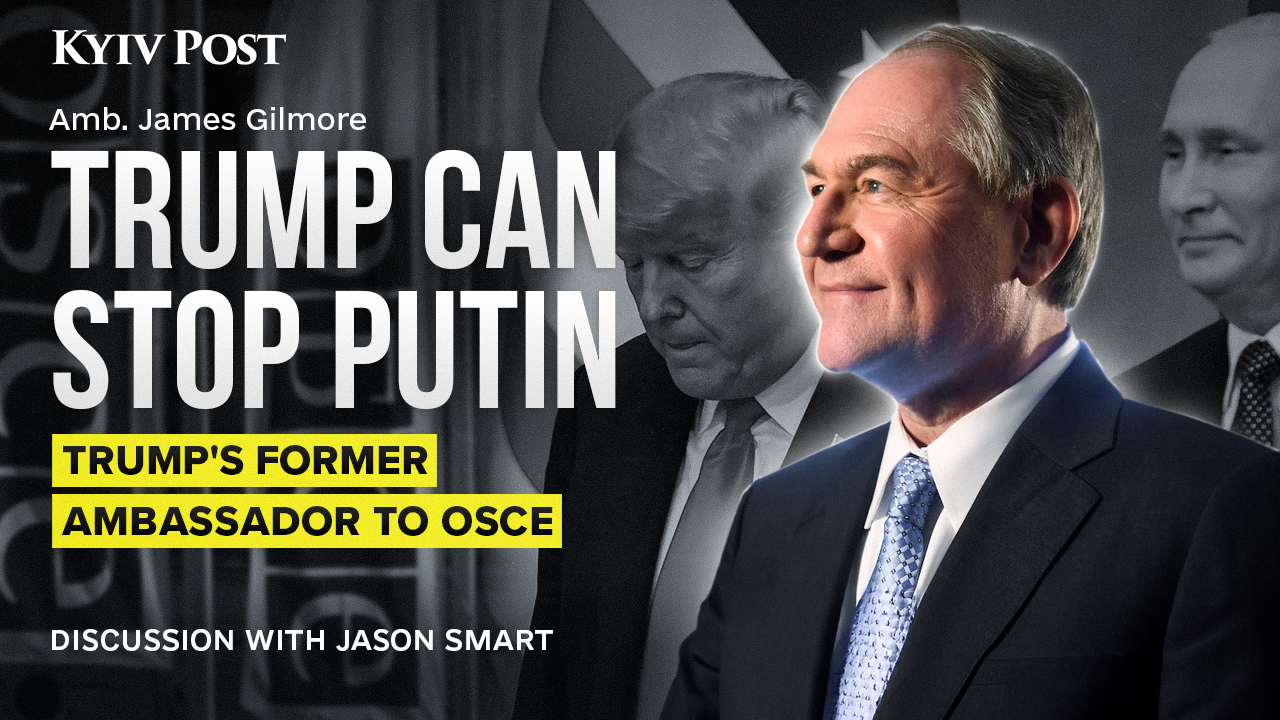I have visited Turkiye several times over the past few weeks meeting with policy makers, journalists, think tankers, bankers, analysts and the like, so I thought I would post a few observations but formatted in a Q&A approach for my own ease of writing.
Q? What’s the Türkiye angle on developments in Syria?
JOIN US ON TELEGRAM
Follow our coverage of the war on the @Kyivpost_official.
Answer - Türkiye’s interest in Syria are numerous but two issues dominate:
First, the 3 million plus Syrian migrants in Türkiye, and the desire that they relocate back to a safe Syria. While Türkiye was welcoming to Syrian migrants initially, and the Turkish state has done a great job in accommodating them - at a huge cost - as elsewhere in Europe, immigration has become a hot topic, and the opposition have exploited the issue as a means to attack the government. The Erdogan administration has hence been trying to ease these domestic social and political pressures by reaching out to the Assad administration to try and find a settlement in Syria which produced a safe environment for returnees from Türkiye. For most of the past year, Assad has spurned these reach outs.
Second, the Kurdish issue, and fears in Türkiye that Syrian Kurdish forces (YPG) would use the weakness of the Assad regime and its allies (Iran and Hezbollah - through Israeli military action in
Lebanon and elsewhere) to carve out greater control in northern Syria, which could be exploited by the PKK to further its own attacks in Türkiye. Ankara worries that it’s strong support for Palestinians in Gaza and criticism of Israel therein risks the Israelis (and their U.S. allies) moving to further support the YPG precisely to hurt Turkish interests.

More Than 6,000 Elite Russian Soldiers Killed in Ukraine – BBC Russian Service
While Türkiye is eager to stress that it is not allied directly with HTS - designated a terrorist organisation by the US and its allies - Türkiye seems to have at the least given the nod for the HTS to push south to Idlib and beyond in their latest offensive. Herein Türkiye likely saw this as helping to ease the humanitarian issues in Idlib, a safe zone still for millions of Syrian refugees - which were at risk of fleeing to Türkiye amid increased Assad regime air strikes.
The evidence suggests that, as with most observers, Türkiye did not expect the operation by HTS to be so stunningly successful, or that Assad regime forces would collapse so rapidly, as has proven to be the case. I think Türkiye assumed the push by HTS would force Assad to the negotiating table but leaving him in office. But Türkiye now seems to be going with the flow, seeing the potential for the latest HTS assault to either collapse the Assad regime fully or force the Assad regime into talks with Türkiye et al, and the opposition, to engineer an endgame where Syria is stable and secure - allowing the return of refugees and that any settlement can also contain Syrian Kurdish groups in the north. On the latter Türkiye has supported action by Turkish backed military groups in the north to counter the YPG, et al.
Türkiye did not expect the operation by HTS to be so stunningly successful, or that Assad regime forces would collapse so rapidly.
For Türkiye, the success of the HTS operation brings numerous benefits aside from offering the prospect of refugee returns and boxing in the YPG. On the diplomatic front, the successful push by the HTS, and recognition that Türkiye has leverage over HTS, has made Türkiye perhaps the dominant external power in Syria - it could be argued therein with Israel (Israel might control the skies, but Türkiye seems to have more influence at this stage on the ground).
With Hezbollah significantly weakened in Lebanon as a result of its war with Israel, and resupply of Assad with Iraqi Militias and IRGC forces constrained by U.S. and Israeli air strikes, Iran finds itself unable to save Assad - Tehran has been signalling in recent days for Iranian citizens to leave Syria, a striking turnaround. Given future risks from a new Trump administration, Tehran might well now be in personal saving itself mode.
Russia, meanwhile, finds itself all too focused on the war in Ukraine to be able to spare additional military resources to save Assad - the Russo-Iranian deal in Syria was that the Russians provide the air power/cover and Iran and its proxies the ground forces to sustain the Assad range.
With Iran no longer able to provide the ground forces, the Russians faced the choice of either doubling down or backing off. They chose to back off. The negotiations now between Türkiye, the HTS and Russia is about securing Russia’s naval base at Tartus the nearby and supporting airbase. But without Turkish support, those Russian bases would appear to be unsustainable. Note here that Russia is not even not asking Ankara to call off the HTS and save Assad - I think there is recognition that with such momentum now behind HTS and the Syrian opposition, it is unlikely they would listen even to Türkiye with the goal in sight of total victory against Assad.
With Iran no longer able to provide the ground forces, the Russians faced the choice of either doubling down or backing off.
Q? Where does all this leave the relationship with Russia?
Answer - In recent months there is much to suggest that relations between Türkiye and Russia have soured. This is reflected in much harsher rhetoric from Moscow criticising Türkiye for the military support it is providing to Ukraine. What’s changed? Well, there has not been any particular step up in Turkish military support for Ukraine, but the quid pro quo for that had seemed to be Türkiye facilitating trade still with Russia - helpful given the West’s efforts to sanction Russia.
But on the sanctions front there is much to suggest that the US, and the West, have tightened the noose around Russia via the secondary piste - since the summer at least making quite strident warnings to Türkiye et al, that they will be held close to account for any signs of helping Russia break sanctions. Western sanction on MOEX and now Gazprombank, have suddenly made it much more difficult for Russia to trade with countries like Türkiye, and Moscow is showing frustrations as it sees trade flows crimp, and its own economy is facing more headwinds - weaker rouble, higher inflation, and higher resulting policy rates.
Moscow has also likely seen the improved defence relationship between Turkey, the US and its allies with the recent F16 deal, a deal being close on Eurofighters, and Russia’s own S400 bought by Turkey all but mothballed - even discussion of it being deployed to a U.S. base in Turkey in exchange for Ankara best brought back into the F35 programme.
Now add in Türkiye’s latest efforts in Syria against the Assad regime, and the Russian ally, and Moscow is unlikely to be best pleased with Ankara. But needs must from the Russian point of view and the Tartus naval base is still a key strategic asset for Russia - a warm water port in the Mediterranean.
What is the price Russia is willing to pay to Türkiye to be able to sustain that base now? Perhaps some deal to help Türkiye ensure gas supplies despite the Gazprombank sanction. This could mean either credit from Russia for gas supplied to Türkiye or barter style solutions. But Russia will need to ensure the gas supplies continue to flow to Türkiye.
Türkiye might also be able to push Russia to agree to allow Türkiye and its ally Azerbaijan access thru the Zangezur corridor to Nakhichevan, albeit Iranian support would also be required - and after developments now in Syria, Türkiye - Iranian relations are likely to be at a low point.
Moscow is unlikely to be best pleased with Ankara. But needs must from the Russian point of view and the Tartus naval base is still a key strategic asset for Russia - a warm water port in the Mediterranean.
Q? And what about the relationship with the US?
Answer, well as noted above there has been progress on the F16 front, talks now of Türkiye getting back on the F35 programme; albeit doubts as to whether ultimately the F35 is the best long-term solution for Türkiye. And as noted above, Türkiye is playing ball with the application of Western sanctions on Russia.
There is though concern in some circles over the future relationship with the Trump administration, given the prior track record (Pastor Brunson et al) Trump’s likely strong support for Israel, and his nomination of a national security team which is replete with Turkey critics and friends of Israel (Rubio, Waltz, et al). The issue of the YPG in northern Syria, which Türkiye sees as being maintained/supported by the US and Israel, is a further potential flashpoint. That said, with Trump expected to push for the 1000-odd US troops in Syria to leave, and Turkey now being the dominant player in Syria, Ankara can offer Trump solutions with respect to its key concerns in Syria - ISIS and other Islamist terror groups using Syria as a base.
Notable here that the HTS, likely after Turkish coaching, has been suggesting a more relaxed and inclusive social agenda. But in the end when we think of US - Turkish relations under the new U.S. administration we have to recognise that Erdogan has first term experience of Trump and is good at all the interpersonal power politics with sociopath-like characters like Trump. Erdogan will play to Trump’s ego - I can imagine the most grandiose of state visits being promised, fit for a king, or Sultan Trump. I have confidence that Erdogan, and his technocrats with lines into the first bro Musk, can manage the relationship with Trump. And no need there for additional support from family members previously with close ties to the Kushner’s as Jared, et al appear to have their fingers in other pies these days beyond the WH.
This an abridged version reprinted from the author’s @tashecon blog! See the full original article here.
The views expressed in this opinion article are the author’s and not necessarily those of Kyiv Post.
You can also highlight the text and press Ctrl + Enter








